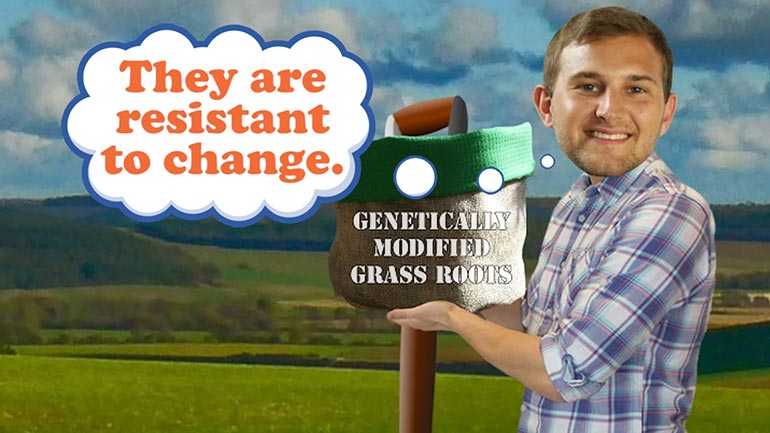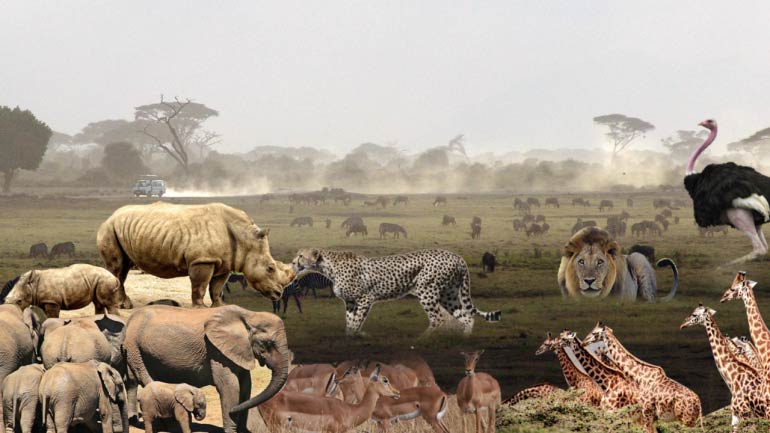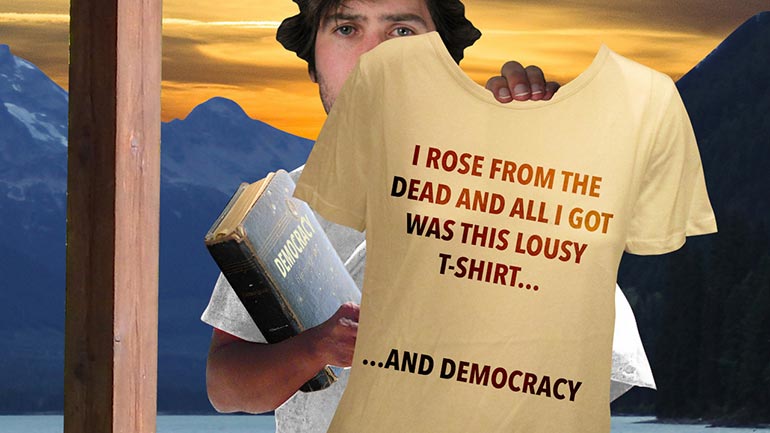ShmoopTube
Where Monty Python meets your 10th grade teacher.
Search Thousands of Shmoop Videos
African History 1: The Nile River 42 Views
Share It!
Description:
We're not going to make another "denial" joke. Nope. Not going to happen. This video is just about the Nile . Not denial.
Transcript
- 00:04
Ancient Egypt.
- 00:05
We’re guessing you’ve heard of it. [A pyramid in Egypt and person wearing an Egyptian mask appears]
- 00:08
It’s that place that had a penchant for burying its kings in giant pointy tombs and
- 00:13
wrapping the dead in toilet paper… [Egyptian buying toilet paper from a supermarket]
- 00:16
Something that looked like toilet paper anyway…
Full Transcript
- 00:18
Have you ever considered how crazy it is that humankind’s first major nation state came
- 00:23
to life… in the middle of the desert? [People with camels in the middle of a desert]
- 00:25
What was Egypt’s secret?
- 00:27
The Nile.
- 00:28
No no…not denial
- 00:31
We mean the river Nile.
- 00:32
In a land that gets hardly any rain all year…
- 00:35
…a river that always has water is an essential commodity. [People gathering water from the River Nile]
- 00:39
The Nile’s water is the thing that first attracted people to the area thousands of
- 00:43
years ago.
- 00:44
And you know what happens when a lot of people end up in the same place? [People fighting in the desert]
- 00:47
After some pushing and shoving, they usually end up getting organized, i.e. creating civilization.
- 00:53
And that’s just what happened in Egypt.
- 00:56
Egyptian society was completely dependent on the Nile. [Guys hanging out eating food and drinking beer by the Nile]
- 00:59
The waters and fertile flood plains fed the entire nation, providing wheat for bread,
- 01:04
barley for beer, and fish for…um…eating.
- 01:08
The Nile’s waters also grew a reedy plant called papyrus. [papyrus growing from the River Nile]
- 01:13
What’s so special about that?
- 01:15
Not much.
- 01:16
Except that the Ancient Egyptians used it to create some of the world’s first paper. [Man holding a scroll of paper]
- 01:21
You can look in any recycling bin to see how well that trend caught on.
- 01:24
The river was also absolutely essential for travel in ancient Egypt. [Man on a jetski in the river nile]
- 01:28
Why hoof it though the desert when you can cruise down the Nile?
- 01:33
This watery highway is one of the main ways that the pharaohs kept Upper and Lower Egypt
- 01:38
unified.
- 01:39
Without the river, everything would’ve fallen apart.
- 01:42
Egyptian society was so in tune with the Nile’s annual floods that the Egyptian calendar was [Image of the Egyptian calendar]
- 01:46
actually based on it.
- 01:48
The years were divided into three seasons…
- 01:50
Inundation…when the land flooded.
- 01:52
Emergence…when the waters receded and the muddy soil was great for planting. [People planting in the soil of the river nile]
- 01:57
And heat…when the river was at its lowest and crops were harvested.
- 02:00
The Nile’s flooding was actually such an integral part of Egyptian life that they called [People stood by the Nile as it pours with rain]
- 02:04
rain that happened in wetter parts of the world “floods of the sky.”
- 02:09
And while they didn’t have a god of the Nile, the annual floods are thought to have
- 02:12
inspired the rituals of death and rebirth of Osiris, one of their chief gods. [Osiris laid down on a bed]
- 02:17
OK, by now we figure you’re catching our drift…
Up Next
Related Videos
Home to the biggest river, the biggest desert, and some of the biggest land animals in the world, Africa is so much more than what most media would...
Didn't get enough of the French Revolution the first time around? We've gotcha covered. Check out our second French Revolution video, preferably wi...
Famine is one of the biggest problems in Africa. Find out why it's such a complex problem, and what's being done to combat it.




